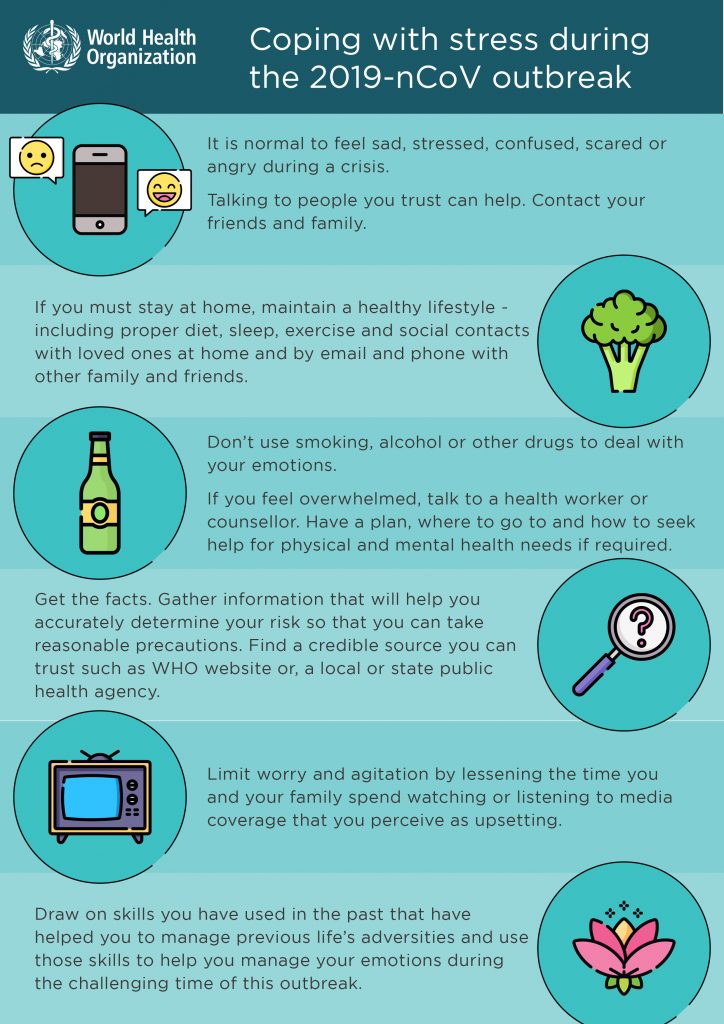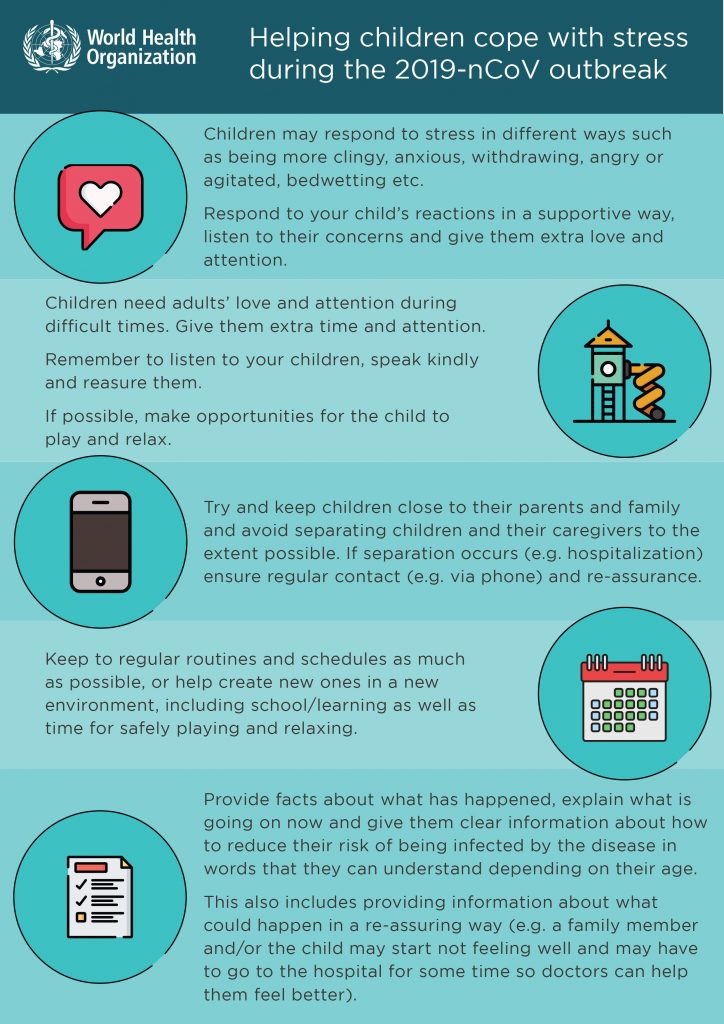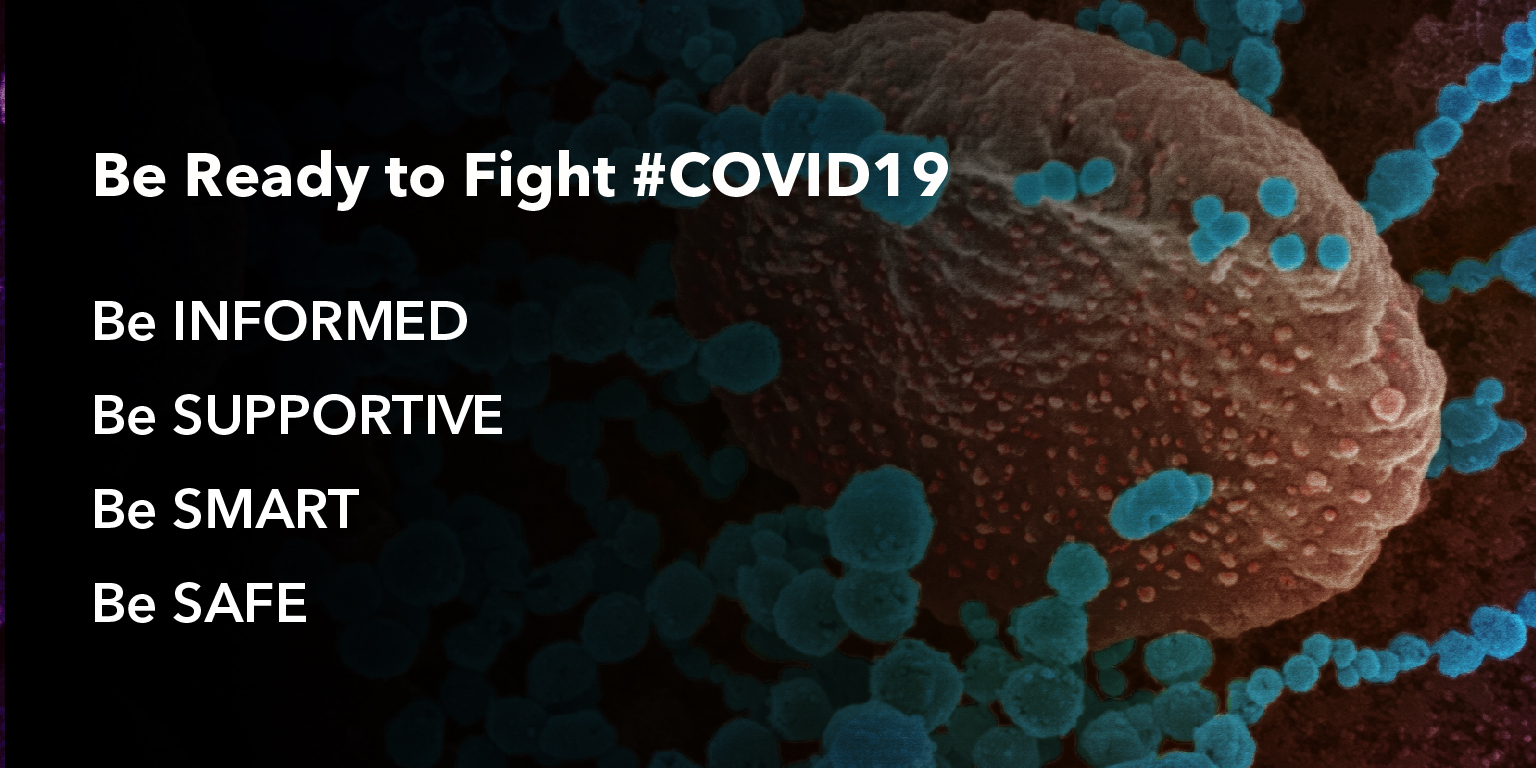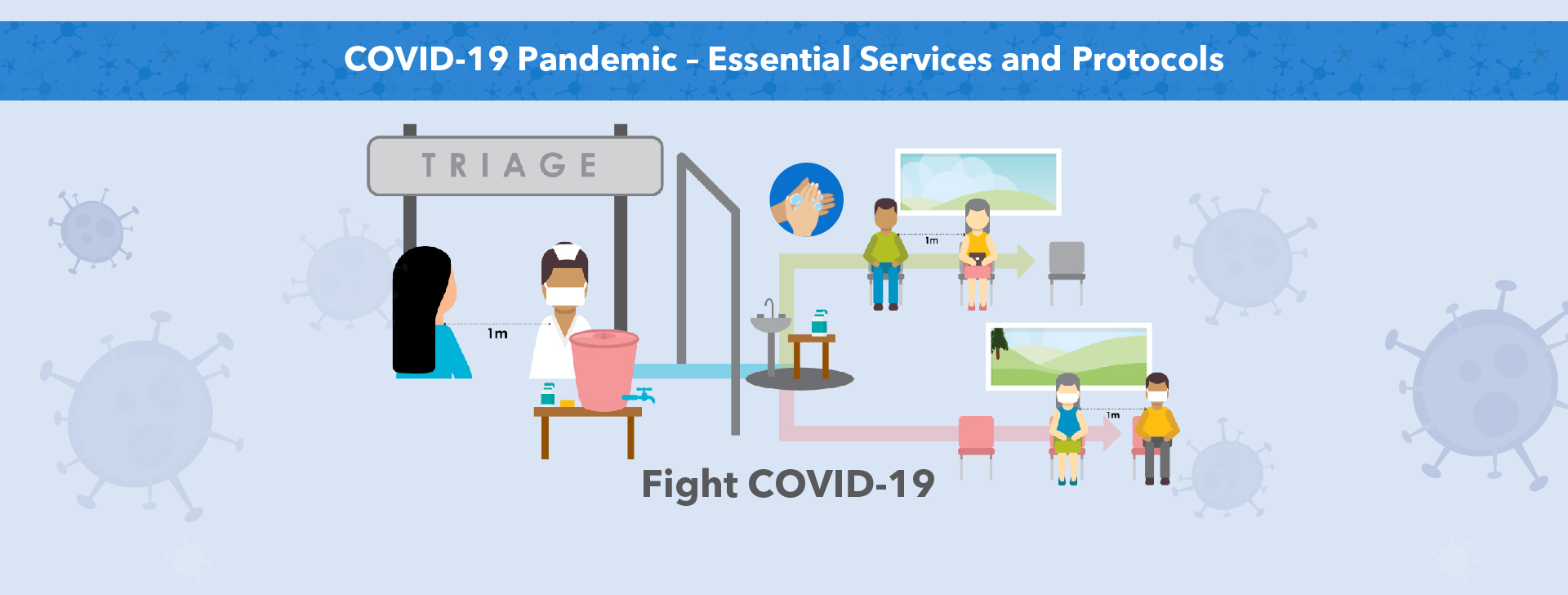What is the new coronavirus?
Coronaviruses are a large family of viruses that infect humans and other animals. Over the recent past, these viruses have emerged as a major threat to humanity: The SARS (Severe Acute Respiratory Syndrome) outbreak in 2003, MERS (Middle East Respiratory Syndrome) outbreak in 2012 and the Coronavirus Disease outbreak in 2019 (COVID-19) emanating from Wuhan, China have resulted due to the evolution of more virulent strains of the virus. The strain responsible for the latest COVID-19 outbreak has been named SARS-CoV-2.
Although the WHO has declared the new coronavirus outbreak a pandemic, there are simple measures we can take to stay safe. For more information visit the official World Health Organisation page at http://tiny.cc/zro8iz
How does it spread?
The new coronavirus is a respiratory virus which spreads primarily by droplets released when an infected person coughs or sneezes, or by contact with their saliva or mucus. Practise social distancing and maintain at least 1 metre (3 feet) distance between yourself and anyone who is coughing or sneezing to protect yourself. Always make sure to clean your hands after coming into contact with high-touch surfaces like elevator buttons, switches and railings.
Symptoms of COVID-19
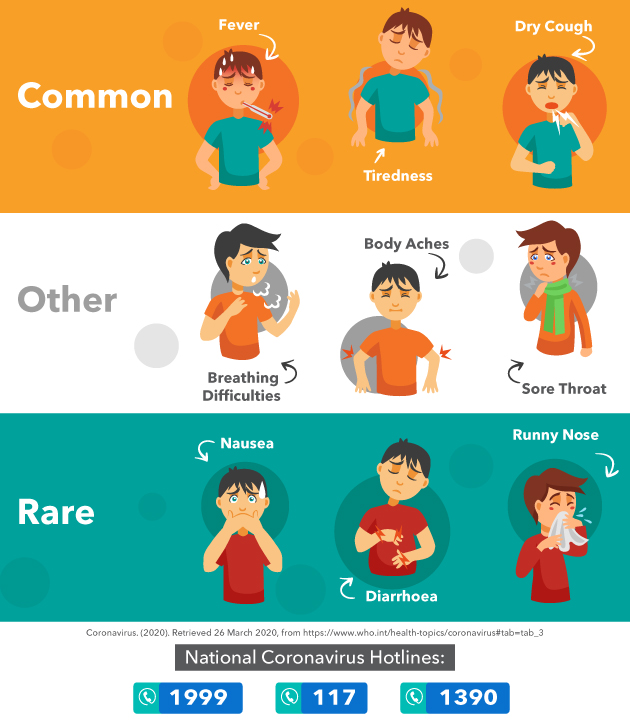
Symptoms are usually mild and begin gradually. Self-isolate if you feel even slightly unwell. If you develop fever, cough and difficulty breathing, seek prompt medical advice. Make sure to call in advance and always follow the directions of your local health authority.
For more information on COVID-19 symptoms visit the WHO page at https://www.who.int/health-topics/coronavirus#tab=tab_3
Coronavirus testing
The novel test uses reverse transcription polymerase chain reaction (RT-PCR), a genetic technology, to detect the presence of the SARS-CoV-2 virus that causes COVID-19. The test can detect the genetic material of the virus in respiratory samples taken from infected individuals.
The coronavirus test is available for individuals and organisations through Durdans Laboratory on an appointment basis. For more information and bookings, contact our 24/7 Laboratory Helpdesk at 011 2 140 111.
What you can do to keep yourself and others safe
The following simple measures are recommended by the WHO to stay safe and prevent the spread of COVID-19:
- Frequently clean your hands using soap and water/alcohol-based hand rub
- Avoid touching your eyes, nose and mouth
- Make sure to wear a mask if you are sick or closely interacting with someone who may have COVID-19
- Maintain at least 1 metre (3 feet) distance between yourself and anyone who has cold/flu symptoms like fever, coughing and sneezing
- Practise good respiratory hygiene by coughing/sneezing into the bed of your elbow or into a tissue. If you use a tissue in this manner immediately dispose of it in a closed bin and clean your hands using soap and water/alcohol-based hand rub.
- Stay home and isolate yourself if you feel unwell. Promptly seek medical advice if you have a fever, cough and breathing difficulty. Don’t immediately visit healthcare centres in this instance. Always call in advance so that you can be directed to the correct healthcare facility and they can prepare for your arrival
- Avoid spreading misinformation by only sharing information that has been validated by your local health authority or the World Health Organisation
- Always follow the advice given by your national public health authority to prevent the spread of COVID-19 and stay safe
How Durdans is keeping you safe
For more information on the safety measures at Durdans Hospital, visit our Essential Services and Protocols page.
Cleaning and disinfection advice
The new coronavirus is very sensitive to common household cleaning agents like bleach and solutions that are least 70% alcohol. If the surface is dirty, thoroughly wash with soap and water first. Make sure to clean and disinfect high-touch surfaces daily.
For more detailed information access the Centres for Disease Control and Prevention website at https://www.cdc.gov/coronavirus/2019-ncov/prepare/cleaning-disinfection.html
or the WHO technical guidance document on sanitation at https://www.who.int/publications-detail/water-sanitation-hygiene-and-waste-management-for-covid-19
Coping with stress during the COVID-19 pandemic
